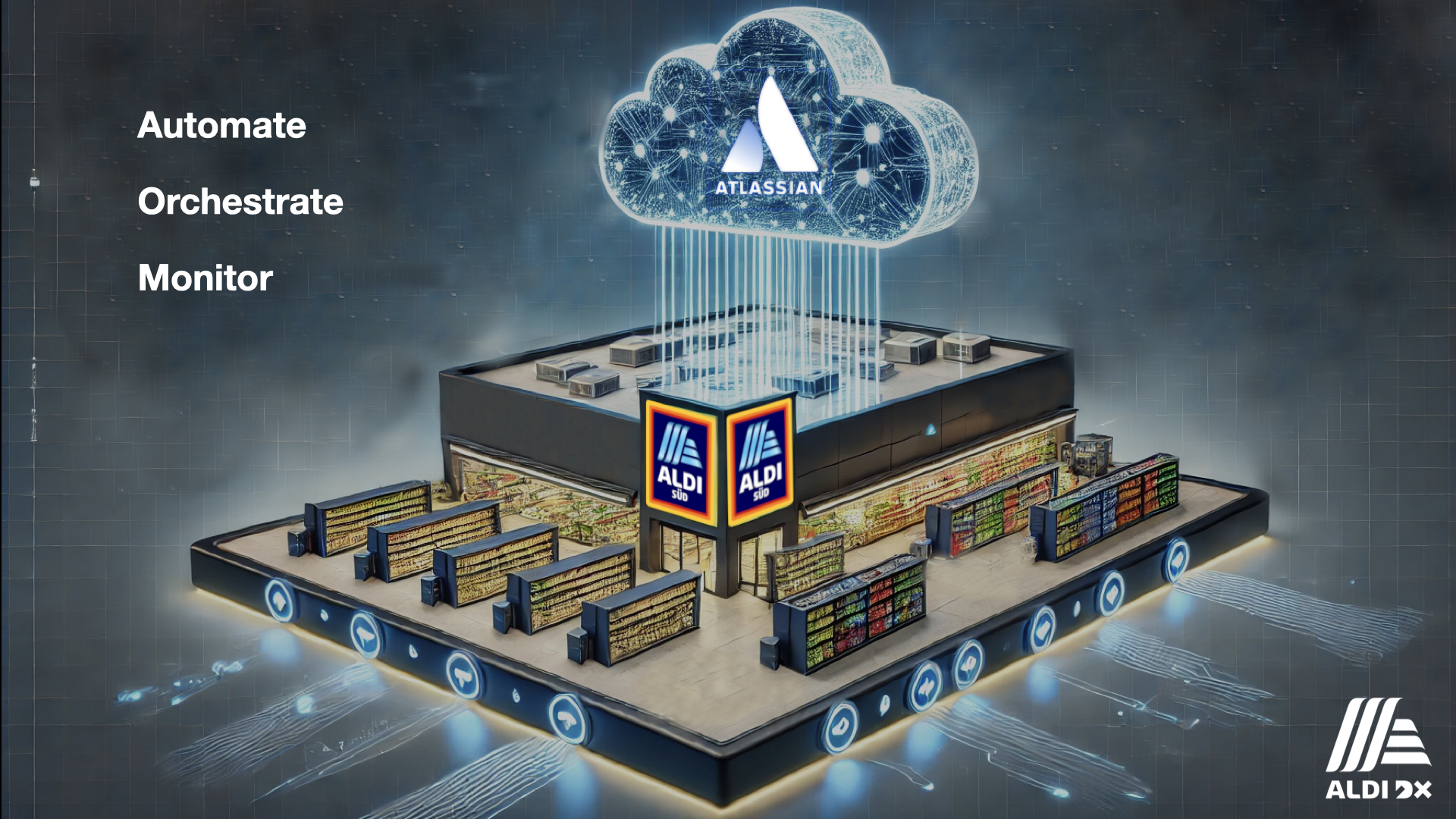How Aldi leverages Jira for digital success
Explore Aldi’s approach to remaining competitive across over 7,000 stores by enabling Jira automation and building a new foundation in the cloud.
The learnings in this blog post are based on the session, “How ALDI digitally transforms global retail with Jira Cloud”, presented at Atlassian’s Team ’25 conference. You can check out this session and others on demand.
From its humble beginnings, Aldi is now an international grocery retail powerhouse operating in 11 countries. Founded in 1961 as a small family business in Essen, Germany, Aldi has grown to become one of the world’s top supermarket chains.
To maintain its competitive standing and expand its presence with 800 new stores in the US by 2028, Aldi embarked on a digital transformation. This meant a comprehensive organizational overhaul, focusing on modernizing processes, engaging employees, and utilizing cloud technologies to future-proof its business.

Due to the nature of running a worldwide grocery chain, Aldi stores operate for long hours each day, which means the transformation work had to be completed overnight, during the few hours when stores were closed to customers.
This process has since allowed Aldi to manage dependencies, drive scalability and efficiency, and face unforeseen challenges with ease. In this blog, we’ll explore how Jira and Jira automation are making digital transformation for highly complex sectors, such as grocery chains, more accessible than ever.
Digital transformation: a crucial step for modern competition
For companies with legacies like Aldi’s, digital transformation is not a question of “if”, but “when.” However, this is no easy process due to the long-standing systems put in place over each company’s timeline.
For Aldi, the scope was vast: 7,000 stores across 85 regions were all slated for digital transformation. Legacy IT tools needed to be replaced with modern solutions, and some systems needed extra TLC to prepare for the transition.
Aldi could only carry out transformation work during an eight to nine-hour overnight window when stores were closed to customers. These constraints meant that any solution adopted had to leverage automation for complex task sequences, ensuring efficiency and minimal disruption to operations.
Leading Aldi’s transformation with Jira
Aldi chose the Atlassian Cloud platform to centralize information across 7,000 stores at scale and used Jira to project manage the transition. By leveraging Jira Automation, Aldi significantly reduced their transition time while still ensuring a human operator led the process at each store.
Comprehensive dashboards provided real-time visibility into every stage of the digital transformation. This enabled teams to quickly identify issues and make informed, timely decisions based on up-to-date data.
Aldi’s three teams leading digital transformation:
The Project Management Office (PMO): Project managers who ensure all tasks are completed, the design is correct, the dates are accurate, and relationships between teams are set up correctly.
“The Experts”: This team, composed of store experts from all aspects of the business, is boots on the ground, actively migrating each store from legacy tools to Aldi’s new Atlassian-based systems.
The Atlassian Platform Team: With thorough knowledge of the Atlassian platform, this team builds the automation framework and ensures its success for both stores and distribution centers. They also help troubleshoot issues if they arise.
The importance of accessibility in store migrations
Jira’s user-friendly interface made the project accessible, and Aldi’s Atlassian Platform Team ensured that all necessary information was available for project members new to Jira. With automation rules in place – complete with status updates, details, relevant issues, and stakeholders attached to each trigger – operators would have everything they needed to do the job at hand.
That is very important, because while there may be 300 people involved in a store migration per country, they might not be constantly involved in the project. You have a constant ebb and flow of new people coming and leaving the project, and many of them have never used Jira in their lives, and for them, it’s really key to make it as easy and accessible as possible.
– Dieter Schade, Senior IT Consultant, ALDI International Services SE & Co. oHG
According to Schade, each project member goes through Jira onboarding training to get them up to speed. However, he highlights it’s crucial to keep the project highly organized and connected, especially for “heat of the moment” situations that arise while managing 600 to 1,000 tasks per store during overnight transformations.
Automation for the win
By leveraging automation, Aldi was able to connect each store to the Atlassian Cloud with full visibility to the Project Management Office throughout the process. In an industry like grocery retail, running a digital transformation within strict time constraints makes automation critical.
This is really a game-changer for our project. Especially for the PMO, because they can not only see the status for one store, but they can see it for all of the stores along with the aggregate data across all of their different gadgets available in the Jira dashboard.
– Dieter Schade, Senior IT Consultant, ALDI International Services SE & Co. oHG
Digital transformation is a critical step for the modern enterprise. For teams that have not yet embarked on their migration journey, Atlassian’s Cloud Migration Guide offers tips on what to expect and resources for a successful execution.
If your teams are ready to future-proof your enterprise, discover how Atlassian Cloud automation can accelerate your digital transformation journey and increase cost efficiency.

